Middlesex County Bat Removal
Welcome to Middlesex County Bat Removal! We are New Jersey bat removal specialists. It is important to know that bats are protected by New Jersey law, and are beneficial animals to have in the environment. We do not kill any bats during our bat removal process. Never hire a pest control company or anyone who says they are a Middlesex County bat exterminator. For correct and effective bat removal, you want a company that specializes in humane bat colony extraction. Our process is not only the only legal method in New Jersey, but it is the most effective. We have a 100% success rate in our bat control process. We perform our industry-best 32-point inspection of your house or building, and seal shut all bat entry holes down to 1/4 inch as part of the removal process, during which we remove the colony via special one-way exclusion devices specific to your architecture. Once all bats are safely out, we permanenetly bat-proof the structure. We also provide guano (bat droppings) removal and decon. Click on our Middlesex County Bat Control Prices page to find out more about our prices for bat control work. We work 24/7/365, and would love to talk to you about your bat problem. Call us any time at 732-333-3939 to discuss it, discuss our pricing, and if you wish, set up an appointment at your convenience, often same-day.
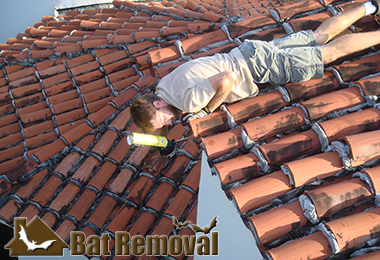
Middlesex County Building and Attic Inspections
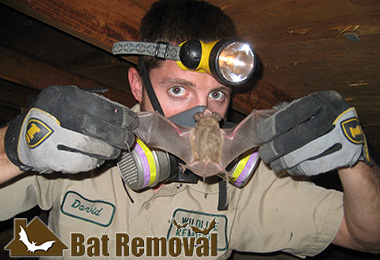
No-kill New Jersey Bat Extraction
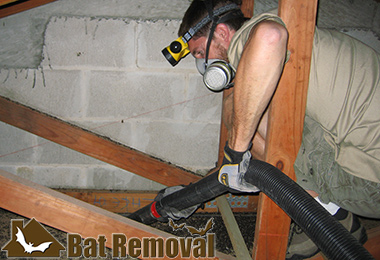
Guano Cleanouts - Serving all of New Jersey
Call 24/7 to discuss your bat problem.
Same-day or next-day appointments.
32-point inspection of your property.
Written estimates for bat removal project.
Fully state licensed and insured.
Residential and commercial service
100% no-kill Middlesex County bat extraction
Complete bat-proofing of your building
Compliance with all New Jersey, federal laws
Guano removal and attic decontamination
Our Service Range - 732-333-3939
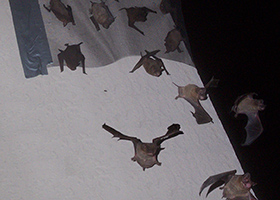
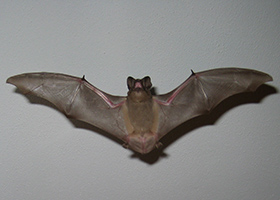
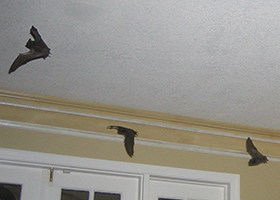
4 Questions Related with Bat's Hibernation
Apart from being nocturnal, there are species of bats that are known to go through a state of torpor once the temperature drops. There are around 1,200 species of bats and not all of them will hibernate. Species that live in the higher altitudes where the insect activities will be lower during winter will mostly go thorough this state to save their body fats and energy.
Things to Know about the Hibernation of Bats
Most of the bats that are in the warmer region will not hibernate. The local species in the colder regions will have to wait out the winter either by migrating to the warmer places or by going through a state of torpor.
1. What Happens During Hibernation
As the temperature drops, more and more bats will hibernate. During this time, you will encounter them in a state of activity in our ceilings, walls, or in caves. This is also known as a deep slumber that may last to up to 6 months. The bats will need to make sure that they have enough body fats to survive the winter. In order to conserve their energy, the bats will be reducing their body temperature. They also have the capacity to slow-down their metabolic rate by reducing their heartbeat and breathing rate. Their average heartbeat when hibernating is around 10beats/minute.
2. When Is the Start of Hibernation?
The month when the bats will hibernate will vary. Basically, they will go to a state of inactivity once the activities of the insects decrease due to the cold weather. This may start on October or November. They will then emerge out of their hibernaculum at the month of February or March but will still go through a state of torpor if the temperature drops.
3. Will They Be Active During Hibernation?
While there are types of bats that will remain active during the hibernation period, they will choose to remain inactive as an act of self-preservation. By doing this, the bat will be able to control their energy consumption to only 2 percent compared to the 100 percent when they are active. Some bats will be able to live more than 6 months despite of having a very small amount of body fats by going through this state. After the hibernation, the average bat will lose more than half of its total body weight.
4. Are There Any Negative Effects Brought by Hibernation?
The bats will make sure that they will keep their movement at the minimum level to avoid wasting their stored fats. Unfortunately, there are instances when they will be disturbed. For instance, they can be bothered by street lights, noises, or a sudden increase on the temperature. If they were unable to find food when they are disturbed, they will soon die. In order to control their body heat, some bats can also hide in our insulation. This can encourage the transfer of the fleas, ticks, and bat bugs.
Most of the bats that will hibernate will return to the same hibernaculum each year. Before the bats will return, be sure that all holes have been sealed to keep them outside.

